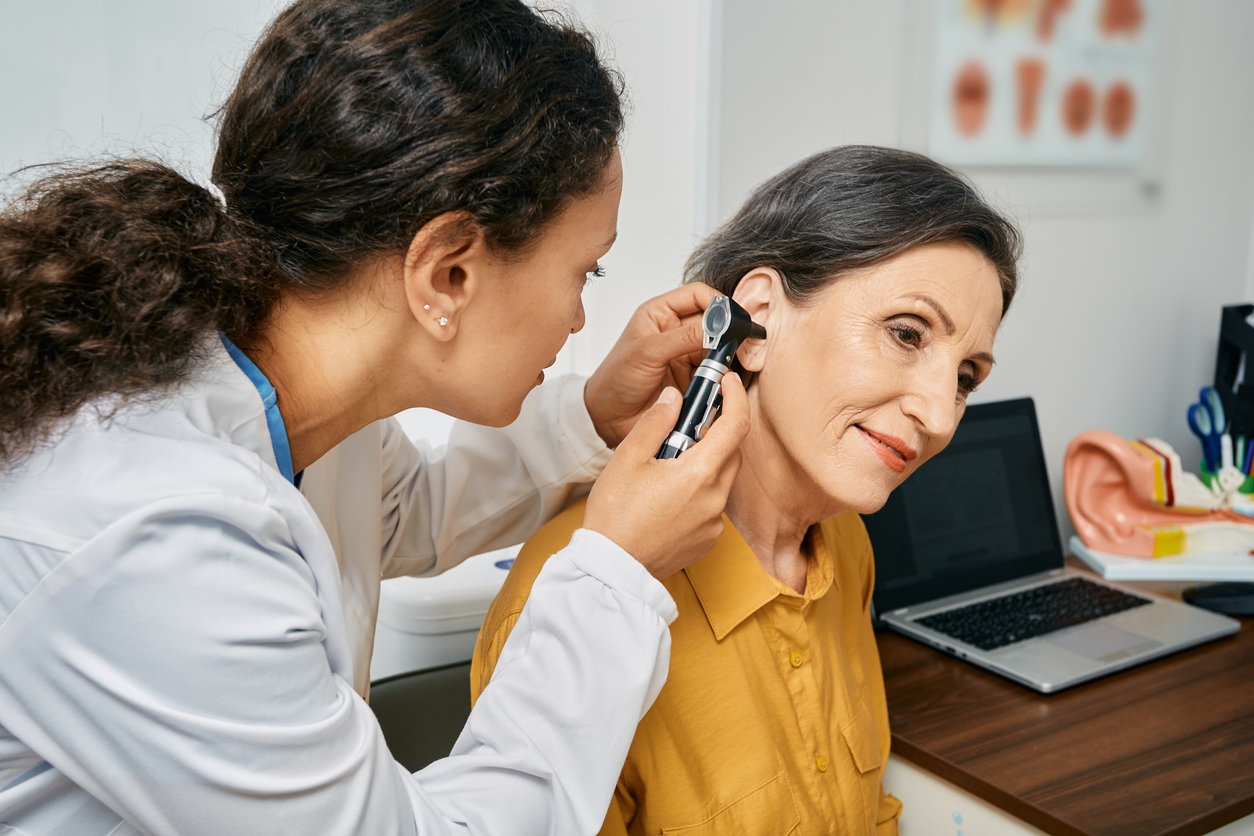If you are feeling any discomfort or pain within your ears, it’s crucial to consult an ear doctor specialist. These specialists can help you find the relief you require because they are qualified to identify and handle a variety of ear-related issues.
Here are 10 reasons to think about visiting a doctor who specializes in ears:
1. Loss of Hearing.
When a person loses all or part of their hearing, it is considered as a medical condition known as hearing loss. One or both ears may be affected, and it can range anywhere from mild to severe. Age, exposure to loud noises, genetics, infections, head trauma, and some medications are just a few of the causes of hearing loss. Additionally, depending on the underlying cause, it may be either temporary or permanent. Hearing loss can make it difficult for a person to understand speech, distinguish sounds, or take part in conversations. It’s important to consult a medical expert, such as an ear specialist doctor near me, if you think you or someone you know may be experiencing hearing loss. They will help you to determine the cause and suggest the best course of action.
2. Tinnitus
Hearing sounds that are not coming from an external source is a symptom of the medical condition tinnitus. One or both ears may hear these noises, which can be described as ringing, buzzing, humming, hissing, or whistling. Tinnitus can be short-term or long-term, and its severity can range from a minor annoyance to a life-altering illness.
Although tinnitus is frequently linked to hearing loss, it can also result from a number of other conditions, such as exposure to loud noises, ear infections, earwax buildup, head or neck injuries, specific medications, and other underlying medical conditions. It might also be a sign of depression, anxiety, or stress.
There is currently no cure for tinnitus, but there are a number of management techniques that can help. The underlying cause of tinnitus can be identified with the aid of an ear doctor specialist, who can also suggest the best course of treatment, which may include medication, hearing aids, sound therapy, or cognitive-behavioral therapy. Tinnitus can be a frustrating and debilitating condition, but with the right care from a certified ear specialist doctor, the symptoms can be managed, and quality of life can be increased.
3. Vertigo.
A medical condition called vertigo makes a person feel off-balance or dizzy, as if the world is spinning around them or they are spinning. It’s a particular kind of dizziness that frequently comes with additional symptoms like nausea, vomiting, sweating, and issues with balance and coordination. The inner ear, which is crucial for maintaining balance and spatial orientation, is frequently the source of vertigo.
The condition known as benign paroxysmal positional vertigo, which happens when tiny crystals in the inside of the ear become dislodged and move into one of the ear’s semicircular canals, is the most frequent cause of vertigo. This may give you a spinning or tilting sensation. Other causes of vertigo include head or neck injuries, inner ear infections, Meniere’s disease, vestibular neuritis, and specific medications. Depending on the underlying cause, vertigo treatment may involve taking medications to ease the condition, performing procedures to move the crystals in the inner ear, and engaging in vestibular rehabilitation exercises to enhance balance and lower the risk of falling. An ear doctor specialist can assist in identifying the underlying cause of vertigo and suggest the best course of action for managing symptoms and enhancing quality of life.
4. Ear Infections.
People of all ages can get ear infections, but children are more likely to get them than adults. An ear infection happens when the middle ear, or the area behind the eardrum, swells up or develops an infection. A virus or bacteria may be to blame for this inflammation, which can cause symptoms like pain, fever, and hearing loss.
Otitis externa, otitis media, and otitis interna are the three different types of ear infections. A foreign object, skin irritation, or exposure to water can all contribute to otitis externa, an infection of the outer ear canal. Otitis media is an infection of the middle ear that is frequently brought on by a cold or flu virus. It can cause fluid to build up behind the eardrum and cause pressure. Otitis interna is an inner ear infection that can result in symptoms like nausea, dizziness, and hearing loss.
Depending on the type and severity of the infection, ear infections may require antibiotics, painkillers, and home remedies like warm compresses and rest. To remove an obstruction or drain fluid from the middle ear, surgery may be required in some circumstances. An specialist ear doctor can assist in determining the type of ear infection and suggest the best course of action to treat symptoms and avoid complications.
5. Blockage Due to Earwax.
A buildup of earwax can result in discomfort, pain, and even hearing loss. Earwax blockages can be safely removed and prevented from recurring by a trained ear doctor specialist.
6. Issues Balancing.
Inner ear issues can contribute to balance issues, which can result in falls and other accidents. Your balance problems can be identified and treated by an ear doctor specialist, who can also help you improve your balance and reduce the risk of falling.
7. Cochlear Implants.
For people with profound hearing loss, cochlear implants may be able to partially restore hearing. Your eligibility for cochlear implants can be assessed by an ear doctor specialist, who can also carry out the procedure if necessary.
8. Hearing Aids
For people with mild to moderate hearing loss, hearing aids can help them hear better. A hearing specialist from an ear doctor can assess your hearing and suggest the best hearing aids for you.
9. Swimmer’s Ear
Swimmer’s ear is an infection that typically develops in the outer ear canal following contact with water. Swimmer’s ear can be identified and treated by an expert in ear care, which helps to avoid it becoming a more serious infection.
10. Allergy-Related Ear Problems.
Allergies can cause ear pain, itching, and other problems. An ear doctor specialist can diagnose and treat allergy-related ear problems, helping you find relief from your symptoms.
Finding Relief
If you’re experiencing any ear-related issues caused by allergies, relief is available. By consulting with an ear doctor specialist who specializes in the diagnosis and treatment of ear issues caused by allergies, you can get the help you need. That’s why we highly recommend Madison Richardson, a premier specialist of otolaryngology in the Los Angeles area.
With a focus on personalized and compassionate care, Madison Richardson can diagnose and treat your ear-related issues effectively. Don’t let your ear symptoms go untreated – seek the assistance of an expert ear doctor specialist nearby. Contact Madison Richardson today at (310) 360-9520 or visit his website to schedule an appointment and experience the relief you deserve.
Your Content Goes Here

